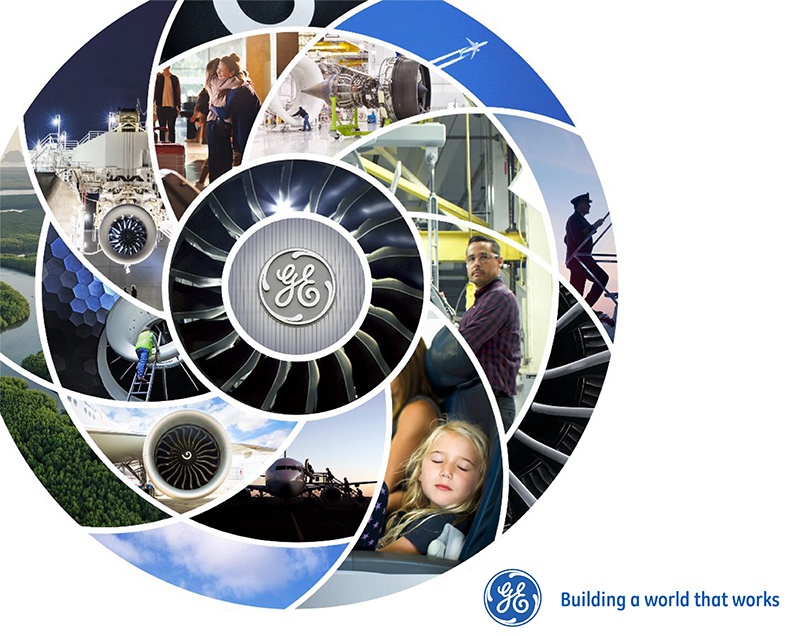Building a sustainable world that works for all
 |
The field of energy is the most talked-about area of sustainability, and with good reason: electricity and heat production account for one-quarter of global greenhouse gas emissions. But it is also a sector poised for growth, with one billion people still lacking access to reliable power and many more living in emerging markets hungry for more electricity.
This means the world will require lots of new power, and quickly. But the mix of generating technologies must be lower carbon. The fastest way to this low carbon future requires renewable power; coal-to-gas fuel switching, which cuts emissions in half; gas turbines that run on hydrogen; and nuclear power, which has the advantage of generating no CO2 while providing reliable, dispatchable baseload power.
When it comes to fuel switching, countries like India, China, and South Africa are looking at transitioning to cleaner-burning, reliable, and high-efficiency thermal power sources, including using natural gas and increasing the share of renewable energy in the energy mix. Vietnam, with annual power demand growth of roughly 10 per cent, also requires significant improvements in energy efficiency and emission intensity, together with national energy mix restructuring for low-carbon economic growth. The broader engagement of GE in green energy has contributed partly to the country’s power transition as we now generate up to 30 per cent of Vietnam’s power with a GE fleet of nearly 30 gas turbines, servicing over 10 power plants and projects.
The need also is great in healthcare. Half the world lacks access to essential health services. Governments are working hard to address this while also seeking to lift the overall quality of care available. At the same time, in many places there are not enough practising doctors and other clinicians. What is required is a sustainable approach to healthcare. That means precision healthcare that personalises diagnoses and treatments for more people, powered by digital and AI. The most notable benefits of digitalisation are improving diagnosis to minimise human errors, increase accuracy, and better manage the patient flow throughout the hospital. For example, a portable mobile X-ray system developed by GE Healthcare that is used by leading hospitals in Vietnam has built-in AI capabilities to alert technicians when the algorithm detects pneumothorax (collapsed lung). With a 95 per cent likelihood of correct diagnosis, this feature can ensure tremendous time savings and uphold safety for patients. AI can also be used to streamline the workflow in an entire radiology department and drive down examination time by 16 per cent.
In aviation, there is a growing volume of people and goods, even as the industry is committed to capping net CO2 emissions today and reducing net emissions by 50 per cent by 2050, relative to 2005 levels. Conventional aircraft engines will need to become more efficient – including innovations like we recently announced with Safran such as open-fan architectures, hybrid-electric and electric propulsion concepts, and advanced thermal management. They also must adjust to accommodate new fuels, such as sustainable aviation fuels and hydrogen. Reducing emissions in aviation will also take software that can help pilots and airlines reduce fuel consumption through operational improvements.
Sustainability also means taking action to reduce demand and consumption. That is something GE is doing to achieve our carbon-neutral goals. A crucial tool we are using to identify and eliminate environmental waste and help reduce our carbon footprint is the lean methodology.
We also are leveraging our 129-year history of innovation to drive a more sustainable future. It is this commitment to research and development that has led to breakthrough technologies, such as the Haliade-X turbine, the world’s most powerful offshore wind turbine built today; the world-record-setting HA turbine, the most efficient gas turbine; GE’s Edison platform, which enables powerful AI and analytics for better healthcare; and future advances in aircraft engines, such as hybrid-electric or electric propulsion.
In recent years, Vietnam strived to make great efforts to respond to climate change, develop its economy, ensure a better life for all people, and make responsible contributions to the international community on its own abilities as well as international support in terms of finance and especially technology transfer. In the coming time, with global standard technology and understanding local needs, GE will continue to support Vietnam through the introduction of the latest technology, tailored to the needs and direction of the country's development, especially sustainable development.
We are at a critical moment. Around the world, more communities require more access to energy, healthcare, aviation and other services, but for the first time, we must meet these needs sustainably. Such a complex challenge requires action on many fronts, including areas that do not seem to have an immediate link to sustainability. Ultimately, it will be innovation in countless sectors that will help us build a sustainable world that works for all.
What the stars mean:
★ Poor ★ ★ Promising ★★★ Good ★★★★ Very good ★★★★★ Exceptional
 Tag:
Tag:
Related Contents
Latest News
More News
- Addressing Vietnam's energy challenges with aeroderivative gas turbines (February 28, 2023 | 09:33)
- How to sprint ahead in 2023’s worldwide energy priorities (February 08, 2023 | 13:55)
- Boosting Vietnam's grid stability through gas turbine technology (November 22, 2022 | 20:02)
- Healthcare trio collaborates to provide thousands of free breast scans (October 27, 2022 | 17:19)
- GE Healthcare's vision for AI-backed radiology (September 29, 2022 | 11:53)
- GE brand trio to shape the future of key industries (July 19, 2022 | 15:35)
- GE unveiling brand names and defining future (July 19, 2022 | 15:16)
- GE: the shortest route towards sustainability (July 18, 2022 | 08:00)
- Be proactive in an uncertain world (May 20, 2022 | 11:40)
- GE secures first 9HA combined cycle power plant order in Vietnam (May 16, 2022 | 17:06)






















 Mobile Version
Mobile Version